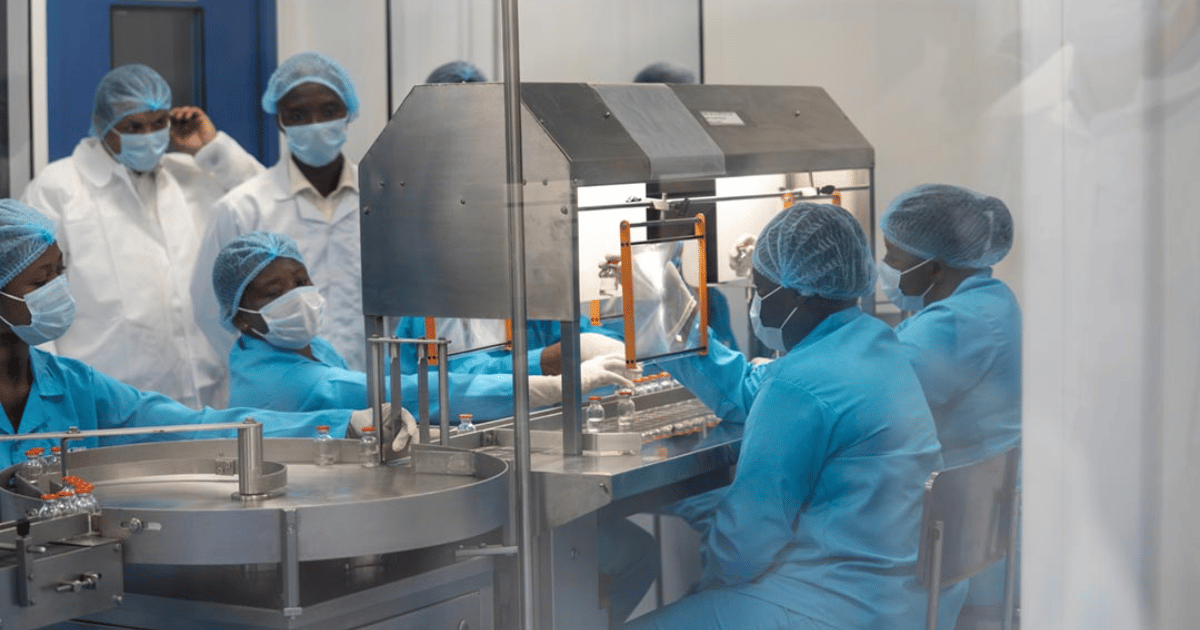
From the newsletter
The Africa Centre for Disease Control (Africa CDC) is rolling out $3.2 billion in financing and grants to boost African pharmaceutical and vaccine production. The plan is designed to tackle the continent’s heavy reliance on imports, which is currently at 99%. The new funding will support local manufacturers who can meet international quality standards.
Afreximbank has pledged $2 billion in financing, while Gavi’s African Vaccine Manufacturing Accelerator (AVMA) will provide $1.2 billion in grants to support the project. To qualify, companies must secure World Health Organization pre-qualification.
Local pharmaceutical manufacturing strengthens climate health by securing medicine supplies during climate-driven disruptions, cutting import emissions, and building resilient health systems to address rising heat, disease and food insecurity risks.
More details
To qualify, companies must secure World Health Organization pre-qualification, what Africa CDC officials call the “blue trophy” that proves products are safe and effective. One of the factories expected to benefit is Uganda’s Dei BioPharma facility in Matugga. A delegation from Africa CDC toured the site last week and praised Uganda’s role as an early champion of local vaccine production.
Dr Abebe Getenu, Africa CDC’s local manufacturing coordinator, said he was confident Dei BioPharma would be among the beneficiaries once it meets the required standards. The plant, which already produces generic painkillers and antibiotics, has ambitions to expand into vaccines and even active pharmaceutical ingredients, a segment dominated until now by producers outside Africa.
To make local production viable, Africa CDC is also setting up a pooled procurement system. Through this, it will combine orders from all 55 African Union countries. This translates to a market of 1.4 billion people. It hopes to give manufacturers confidence that their products will find buyers and avoid the shortages and inequities in future health emergencies.
Vaccine and drug self-reliance is a crucial component of climate-health resilience in Africa, as it reduces dependence on external sources in the case of a health emergency. Local manufacturing shortens supply chains and ensures quicker availability of medical products tailored to emerging regional threats, which are likely to become more frequent due to climate disruptions.
However, pharmaceutical manufacturing in Africa faces challenges related to access to technology, financing, skilled workforce, regulatory hurdles and weak supply chains. A large portion of the industry relies on imported raw materials and active pharmaceutical ingredients while others are still struggling to get equipment capacity for manufacturing.
International investments like the Africa CDC programme are helping build momentum. In 2020, the European Investment Bank launched a programme worth $55 million to support African pharmaceutical capacity. Partnerships with organisations such as the Global Fund are also backing the sector.
Our take
Local pharmaceutical manufacturing in Africa is a climate resilience strategy. The COVID-19 pandemic highlighted the risks associated with high import dependence and the vulnerability of supply chains for essential medical products.
Establishing local manufacturing capabilities is crucial for ensuring access to these products during health crises and promoting long-term health security and self-reliance on the continent.